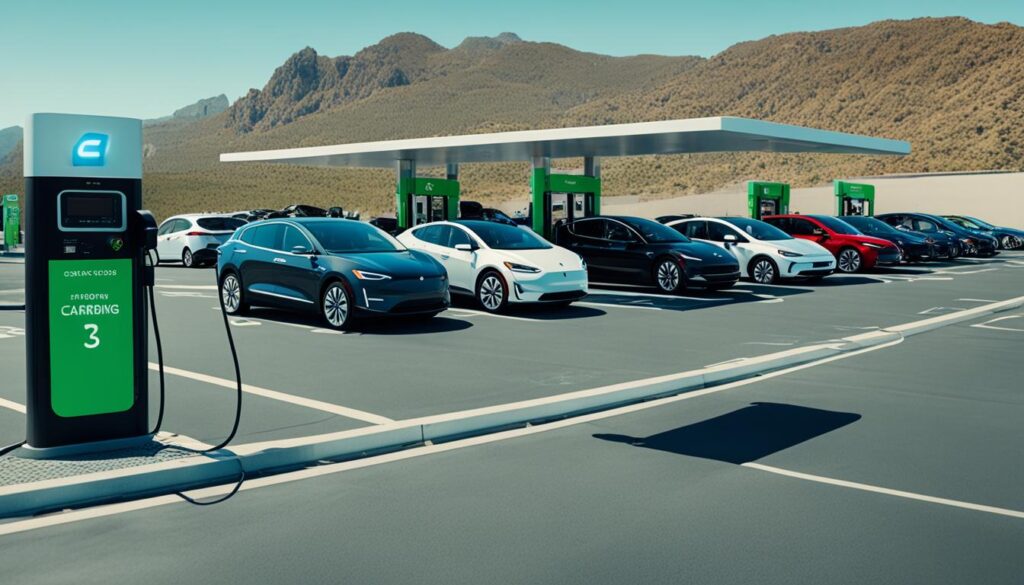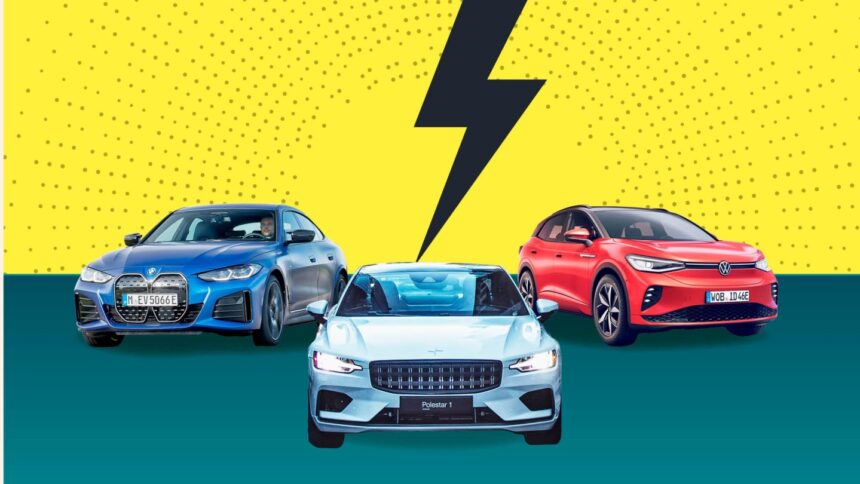The global automotive industry is undergoing a monumental transformation, with electric cars leading the way toward a cleaner and more efficient transportation system. As governments push for carbon reduction and automakers innovate with cutting-edge technology, electric vehicles (EVs) are gaining traction worldwide. But what does the future hold for electric cars? Let’s explore the key advancements, challenges, and emerging trends that will define the next stage of the EV revolution.
The Growing Market for Electric Cars
Electric cars have evolved significantly from their early prototypes, overcoming challenges like high costs and limited battery life. Today, they are more affordable, practical, and accessible than ever, thanks to advancements in battery efficiency, vehicle performance, and widespread infrastructure development.
As consumer demand surges, global EV sales have skyrocketed in key markets such as China, Europe, and North America. Governments and regulatory bodies continue to introduce policies that favor EV adoption, including tax incentives, subsidies, and stricter emissions regulations. These efforts have led to a massive shift toward sustainable transportation, setting the stage for a future dominated by electric vehicles.
Innovations in Battery Technology
The heart of electric cars lies in their batteries, and ongoing research is pushing the boundaries of energy storage and efficiency. Scientists are developing solid-state batteries, which promise higher energy densities, longer lifespans, and improved safety compared to traditional lithium-ion batteries. These advancements will significantly extend the driving range of EVs and reduce charging times, making electric cars even more practical for daily use.
Another exciting innovation is ultra-fast charging technology. With improvements in battery chemistry and high-capacity charging stations, charging an electric vehicle in under 15 minutes is becoming a reality. This development will help eliminate range anxiety and make EV ownership more convenient for a broader audience.
Expansion of Charging Infrastructure
One of the biggest barriers to widespread EV adoption is the availability of charging stations. While urban areas have seen significant infrastructure growth, rural and underdeveloped regions still lack sufficient charging points. To address this, governments and private companies are investing heavily in expanding the charging network, ensuring that electric cars become a viable option for everyone.
Wireless charging is also emerging as a game-changer in the industry. Research and development in inductive charging technology will allow electric vehicles to charge seamlessly without the need for physical connections. This innovation will simplify the charging process and promote the widespread use of electric cars.
Vehicle-to-Grid (V2G) Technology
Electric cars are not just consumers of electricity; they have the potential to give back to the grid through Vehicle-to-Grid (V2G) technology. This revolutionary concept allows EVs to store excess energy and return it to the power grid when needed, contributing to energy stability and efficiency.
With renewable energy sources like solar and wind power becoming more prevalent, V2G technology can help balance fluctuations in energy supply and demand. EV owners could also benefit financially by selling surplus electricity back to the grid, turning their cars into valuable energy assets.
Autonomous Electric Vehicles
Self-driving technology is another major innovation that will shape the future of electric cars. Automakers and tech giants are investing billions in artificial intelligence (AI) and machine learning to develop autonomous EVs that enhance road safety and efficiency.
Autonomous electric cars will be equipped with advanced sensors and real-time data analysis capabilities, reducing human errors and traffic congestion. As AI-driven transportation systems become mainstream, the way people commute and travel will change dramatically, leading to smarter and more sustainable urban mobility solutions.
Challenges in the Electric Vehicle Industry

Despite significant progress, electric cars still face several challenges that need to be addressed before mass adoption becomes a reality. One of the main hurdles is the high initial cost of EVs. While battery prices are gradually decreasing, electric vehicles are still more expensive than traditional internal combustion engine (ICE) cars. However, as economies of scale improve and manufacturing processes become more efficient, EVs are expected to become more affordable in the near future.
Another challenge is the need for a robust charging infrastructure. Although urban areas are seeing rapid growth in charging stations, rural and remote regions still lack sufficient facilities. Expanding the charging network will be crucial in making electric cars more practical for a global audience.
Sustainability concerns related to battery production and recycling are also critical. The extraction of raw materials like lithium, cobalt, and nickel has environmental and ethical implications. To mitigate these issues, companies are focusing on sustainable battery production methods and innovative recycling techniques that minimize waste and reduce the environmental footprint of electric vehicles.
The Future of Electric Cars
Looking ahead, the future of electric cars appears brighter than ever. Automakers are working on more affordable EV models to cater to a wider audience, ensuring that electric mobility becomes accessible to all. Governments will continue to implement policies that accelerate EV adoption, further reducing reliance on fossil fuels.
Longer driving ranges, faster charging capabilities, and advanced autonomous features will define the next generation of electric vehicles. Additionally, sustainability initiatives will play a critical role in making EV production and battery recycling more eco-friendly, reducing the industry’s overall carbon footprint.
The next decade will be a defining period for electric cars as they move from being a niche product to a mainstream mode of transportation. With ongoing technological advancements and growing consumer acceptance, the EV revolution is poised to reshape the global automotive industry, paving the way for a cleaner, greener future.
Conclusion
Electric cars are no longer just an emerging trend—they are the future of mobility. The combination of technological innovations, government support, and shifting consumer preferences is accelerating the adoption of EVs at an unprecedented rate. With continued investments in battery technology, charging infrastructure, and autonomous driving, electric vehicles will soon become the dominant force in the automotive industry.
As we look forward to the next phase of the EV revolution, one thing is certain: electric cars are here to stay. Whether through advancements in battery efficiency, improved affordability, or the expansion of smart transportation networks, the transformation of the automotive sector is well underway. The road ahead is electrifying, and the future of transportation has never been more promising.
